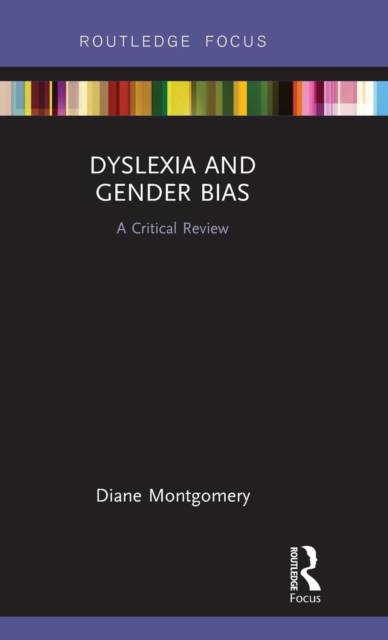
- Afhalen na 1 uur in een winkel met voorraad
- Gratis thuislevering in België vanaf € 30
- Ruim aanbod met 7 miljoen producten
- Afhalen na 1 uur in een winkel met voorraad
- Gratis thuislevering in België vanaf € 30
- Ruim aanbod met 7 miljoen producten
Omschrijving
Providing an overview of the various understandings and approaches taken to dyslexia over the last 100 years, this text considers why men have traditionally taken the lead in dyslexia theory and research, whilst women have often been confined to practice.
Exploring how and why particular pathways in dyslexia theory, research and practice were historically pursued, whilst other potentially successful methods were not, Montgomery argues that gender bias has played a significant and often obstructive role in the development of our identification and understanding of dyslexia. Explaining why women and girls have often been under-represented in dyslexia clinics and in research, chapters trace the contributions made by dyslexia pioneers, analyse current problems within education and research systems, and document widespread patterns of misogyny and gender discrimination in the field. Montgomery links dyslexia history, current research paradigms and transgender experiences, to ask whether assumed male superiority has disadvantaged dyslexic learners, and whether it will continue to do so. In the process, she presents a new trajectory for research and practice.
A timely exploration of the impacts of gender discrimination on research and education, this text provides essential insight into the subtle impacts of sexism on dyslexic learners.
Specificaties
Betrokkenen
- Auteur(s):
- Uitgeverij:
Inhoud
- Aantal bladzijden:
- 116
- Taal:
- Engels
Eigenschappen
- Productcode (EAN):
- 9780367140892
- Verschijningsdatum:
- 2/01/2019
- Uitvoering:
- Hardcover
- Formaat:
- Genaaid
- Afmetingen:
- 135 mm x 218 mm
- Gewicht:
- 272 g

Alleen bij Standaard Boekhandel
Beoordelingen
We publiceren alleen reviews die voldoen aan de voorwaarden voor reviews. Bekijk onze voorwaarden voor reviews.











